This article was co-authored by Aimee Eyvazzadeh, MD, MA. Aimee Eyvazzadeh is a Fertility Specialist and the Founder of The Egg Whisperer Show, a fertility care program focusing on fertility education based in the San Francisco Bay Area. Her work has been featured in magazines such as People, Forbes, and Marie Claire, and she has been featured on the Today Show, Good Morning America, and CNN. She earned an MD from the University of California, Los Angeles in 2001, completed an OB/GYN residency at Harvard Medical School in 2005, and finished a fellowship in Reproductive Endocrinology and Infertility at University of Michigan, where she also completed an MPH.
There are 13 references cited in this article, which can be found at the bottom of the page.
wikiHow marks an article as reader-approved once it receives enough positive feedback. This article received 11 testimonials and 100% of readers who voted found it helpful, earning it our reader-approved status.
This article has been viewed 1,413,255 times.
Periods are your body's way of showing you that your reproductive system is working properly, and not getting your period at all is usually a sign of illness or an unhealthy lifestyle. However, there are ways to make a normal, healthy period last a shorter amount of time. To make your period go away faster, you can use heat, exercise, and other habits that speed the flow of blood while also changing your diet to keep yourself hydrated and maximize your vitamin C intake. Certain medications, like birth control, can also change your cycle and shorten your period long-term.
Steps
Picking Up Period-Ending Habits
-
1Use heat to your advantage. Applying a heating pad to your pelvis or taking a hot bath can help relax your pelvic muscles and dilate your blood vessels, which can stimulate blood flow and thus speed up your period.[1]
- Consider this a reason to draw yourself a hot bath and take a while to soak. Your cramps will feel better and your period may run its course faster – and you get some much needed me-time, too.
-
2Exercise regularly. Exercising during your period can help alleviate PMS symptoms like bloating, fatigue, and moodiness.[2] Many people find that getting regular physical exercise can also help manage the heaviness and duration of their periods in the long run.
- In fact, overexercising, or exercising more than your body is used to, can completely change your normal period schedule. Gymnasts and the like often don't get their periods at all because they work out so much. While you shouldn't work out so much your body gets stunted, exercising regularly does have many benefits.
Advertisement -
3Try acupuncture. Acupuncture is among the oldest healing practices in the world, and is used to treat a wide array of physical ailments using pressure points rather than medicine. Getting acupuncture regularly can help regulate the menstrual cycle and alleviate mood swings, menstrual cramps, and other PMS symptoms.[3]
- It’s great for stress, too. However, some believe that it can stop your cycle entirely, so be sure to talk to your doctor before you begin taking this route.
-
4Have sex. New science says that orgasms can limit the duration of your period.[4] How? Orgasms cause muscle spasms that in turn cause the blood from your uterus to flow out faster. If you can get over how it might be a little icky, it's worth a shot.
- Most people have a higher sex drive during their periods, anyway. Wait till the 3rd day or so (or whenever your period is a bit lighter), lay down some towels, and stick to the missionary position. You may be surprised how much you like it.
- Though it's less likely, you can get pregnant during your period. Play it safe and use protection.
Eating and Drinking Differently
-
1Drink plenty of water. Being dehydrated during your period can contribute to bloating and other unpleasant PMS symptoms. Try to drink more water than usual during your period to combat these symptoms.
- Cut down on caffeine, alcohol, and sodium while on your period, as these things dehydrate the body. If you do consume these goods, make up for it by drinking even more water.
-
2Drink more tea. Trying to fight that caffeine craving and staying away from soda and coffee? Turn to tea. Not only will it keep you going, but research says it's good for cramps, too.[5]
- Tea is the next best thing to water. If you can't drink water, this should be your go-to. In addition to keeping you hydrated, drinking tea has also been linked to fighting cancer, heart disease, and diabetes; encouraging weight loss; lowering cholesterol; and bringing about mental alertness.[6]
-
3Get more vitamin C. Getting a lot of vitamin C can starve the uterus of progesterone, which in turn breaks down the uterine walls. All of these can lead to a more accelerated period, making it a thing of the past sooner.[7] Here's a short list of foods that have ample quantities of vitamin C:[8]
- Cantaloupe
- Citrus fruits and juices, such as orange and grapefruit
- Kiwi
- Mango
- Papaya
- Pineapple
- Strawberries, raspberries, blueberries, cranberries
- Watermelon
-
4Eat some period-fighting power foods. Say goodbye to cramps and period problems through your diet. The following list is full of vitamins, minerals, omega-3s, and antioxidants that all can curb the pain and lessen your period:[9]
- Dill
- Celery
- Sesame seeds
- Salmon
- Dark chocolate
- Parsley
- Hummus
-
5Avoid dairy, caffeine, sugar, alcohol, and red meat. These foods are known to cause cramps and upset stomach, in addition to leading to stress and anxiety (at least in caffeine's case).[10] To be on the safe side, just avoid them during your period.
- If you desperately need a pick-me-up, go for a bite of dark chocolate and glass of red wine. Dark chocolate has that sugar you're craving but is more natural; red wine has heart benefits and antioxidants that fight in your favor.
Using Medication
-
1Consider taking birth control pills. Birth control works by suppressing your body's fertility and temporarily eliminating menstruation. Some people take birth control solely for the purpose of shortening the duration and frequency of their periods.[11] Talk to your doctor to determine whether birth control is safe for you.
- The amount of periods you get each year will depend on the type of birth control you take.
- For some people, birth control can cause unexpected bleeding (spotting) in between periods.
-
2Consider other forms of birth control, too. Just about every form of birth control (hormonal IUD, the implant, the shot, the pill, the patch, and the ring) can make your period lighter. It won’t make it go away right now, but it can stop problems from arising later. Talk to your doctor about whether or not any of these options are right for you.
- If for some reason you don’t wish to have your period at all, many people report their period lapsing after taking the shot for about a year.[12]
-
3Carefully consider skipping your blank birth control pills. If you’re on the pill, it’s relatively safe to skip the blanks and go straight into another packet. This way, you won't experience your period at all.
- With the approval of your doctor, this can be safe. Just know that you may have breakthrough bleeding if you rely on this method too long or too often. It can also give you some wonky physical symptoms and mess with accuracy in pregnancy tests.[13]
- There are actually types of birth control pills on the market that have you take active pills for 12 weeks, meaning a period once every three months. If this sounds up your alley, talk to your doctor about getting a prescription for one of these varieties (Seasonale, Jolessa and Quasense, Seasonique and Camrese, Lybrel).
-
4Take NSAIDs. In addition to fighting the pain and discomfort that often comes each month, NSAIDs like Ibuprofen or Naproxen may also reduce bleeding by 20-50%.[14] Pop one before hitting the hay, too, to get a more restful night's sleep.
- Follow the package directions when it comes to how many you should take. 200 to 400 mg orally every 4 to 6 hours as needed is the recommended adult dose of Ibuprofen and Motrin.[15]
- See a doctor if your period pain is severe so you can get tested for fibroids and endometriosis.
-
5Take calcium and vitamin D to help deal with PMS. Some medical experts believe that calcium and vitamin D deficiencies can make PMS symptoms worse. If you are worried that you are not getting enough of these nutrients, consider taking a daily multivitamin or changing up your diet to include more vitamin D and calcium-rich foods.
- Milk, collard greens, yogurt, rhubarb, tofu, and sardines are all rich sources of calcium.
- To get more vitamin D, incorporate more fish (especially raw fish), eggs, dairy products, oysters, mushrooms, and fortified cereals into your diet.[16]
- You can also take a cod liver oil supplement, which contains both vitamin A and vitamin D.[17]
-
6Talk to your doctor about heavy periods (menorrhagia).[18] Everyone wants a shorter period, but for some, it may be a medical necessity. Menorrhagia is a condition involving abnormally long and/or heavy periods. Excessive bleeding caused by menorrhagia can cause anemia, shortness of breath, fatigue, and interrupted sleep.[19] The treatment you need will depend on what is causing the abnormal bleeding in the first place. Treatment options include using non-steroidal anti-inflammatory drugs like ibuprofen, hormone therapy, or medications that promote blood clotting.[20]
- To determine if your bleeding is abnormally heavy, check for the following symptoms:
- If you do have the above symptoms, talk to your doctor. You can get started on medication right away that can bring your periods back to normal and keep you healthy.
Warnings
- Birth control does not protect against sexually transmitted disease. You should still practice safe sex even if you are on birth control.⧼thumbs_response⧽
- Talk to your doctor before adding a new vitamin or herbal supplement to your diet, especially if you are currently on any medications.⧼thumbs_response⧽
- There are many potential adverse side-effects of birth control, including weight gain and increased blood pressure. Before starting birth control (for whatever reason) consider whether the benefits outweigh the potential risks.⧼thumbs_response⧽
References
- ↑ http://youqueen.com/life/health/how-to-speed-up-your-period/
- ↑ http://www.shape.com/lifestyle/mind-and-body/exercise-and-your-menstrual-cycle-what-your-period-means-your-workout-schedu
- ↑ http://youqueen.com/life/health/how-to-speed-up-your-period/
- ↑ http://www.therotundaonline.com/features/article_c2ee1fe8-892d-11e3-aca1-001a4bcf6878.html
- ↑ http://www.huffingtonpost.ca/2012/07/26/foods-for-cramps-10-foods_n_1701837.html
- ↑ http://www.webmd.com/diet/features/tea-types-and-their-health-benefits
- ↑ http://youqueen.com/life/health/how-to-speed-up-your-period/
- ↑ http://www.nlm.nih.gov/medlineplus/ency/article/002404.htm
- ↑ http://www.huffingtonpost.ca/2012/07/26/foods-for-cramps-10-foods_n_1701837.html
- ↑ http://www.huffingtonpost.ca/2012/07/26/foods-for-cramps-10-foods_n_1701837.html
- ↑ http://www.webmd.com/sex/birth-control/features/no-period-pills
- ↑ http://bedsider.org/features/284
- ↑ http://www.mayoclinic.org/healthy-living/birth-control/in-depth/womens-health/art-20044044
- ↑ https://www.nhs.uk/conditions/heavy-periods/treatment/
- ↑ http://www.drugs.com/dosage/ibuprofen.html
- ↑ http://www.healthaliciousness.com/articles/high-vitamin-D-foods.php
- ↑ http://www.healthaliciousness.com/articles/high-vitamin-D-foods.php
- ↑ http://women.webmd.com/guide/heavy-period-causes-treatments
- ↑ http://women.webmd.com/guide/heavy-period-causes-treatments
- ↑ http://women.webmd.com/guide/heavy-period-causes-treatments
- ↑ http://women.webmd.com/guide/heavy-period-causes-treatments
- ↑ http://women.webmd.com/guide/heavy-period-causes-treatments
- ↑ http://women.webmd.com/guide/heavy-period-causes-treatments
About This Article
To make your period go away faster, use a heating pad on your pelvis or take a hot bath to help relax your pelvic muscles. Using heat will help dilate your blood vessels, which can speed up your period by stimulating blood flow. Try getting enough exercise as well, which can not only alleviate PMS symptoms like bloating and fatigue, but also help manage the heaviness and length of your period. In addition to exercise, add more vitamin C to your diet by eating cantaloupe, citrus fruits, kiwi, mango, and watermelon, which can lead to a faster period. To learn how to use birth control pills to regulate the length of your period, keep reading!
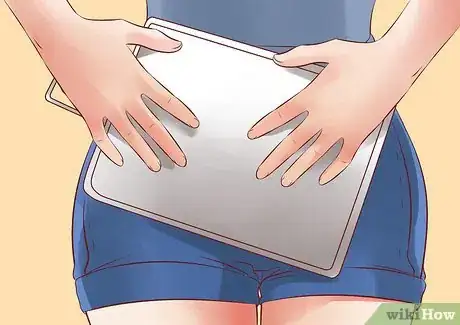
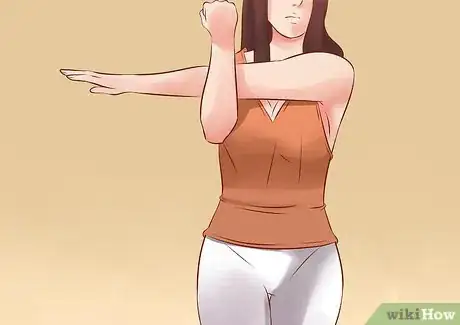
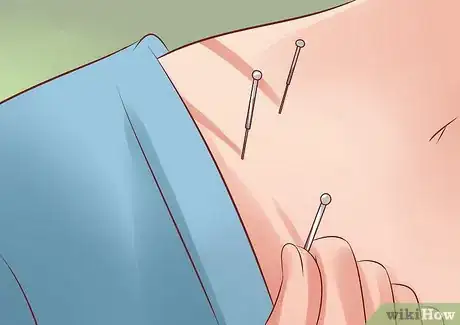
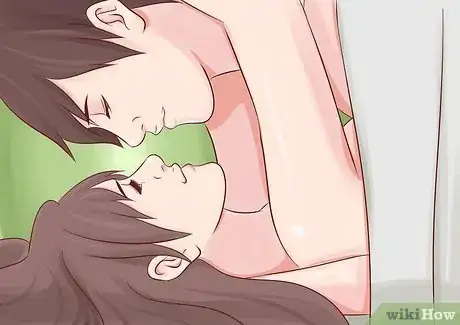
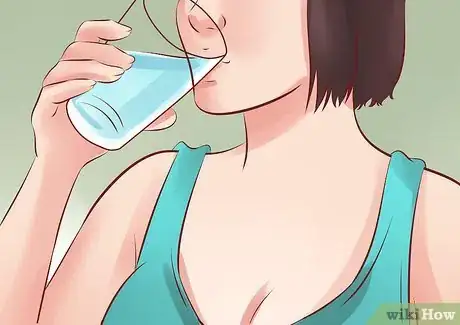
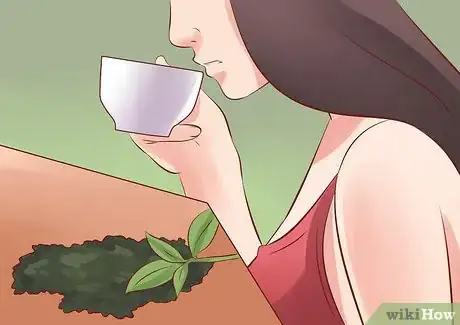
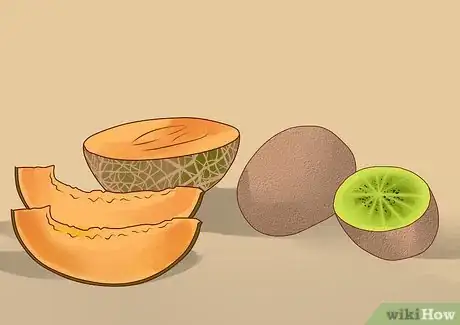
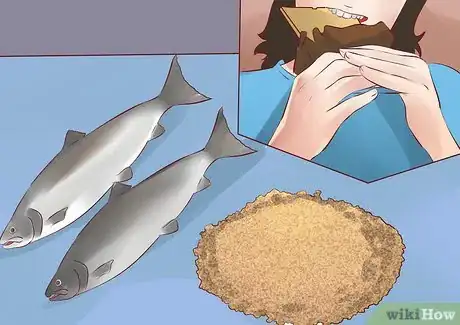
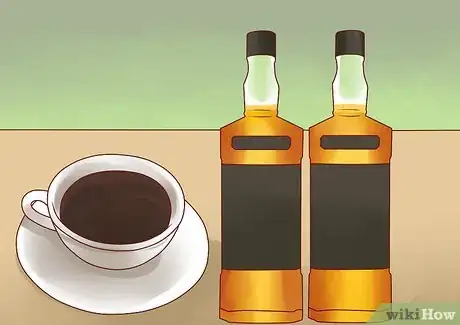
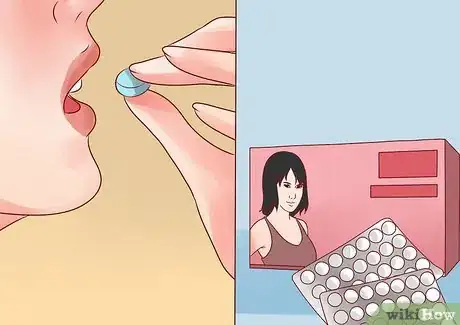
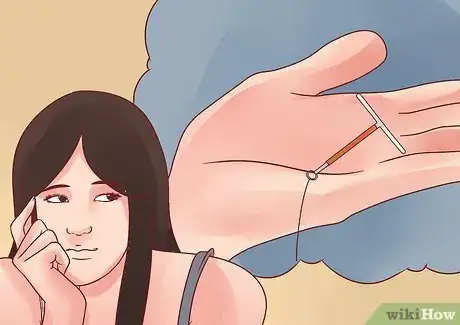
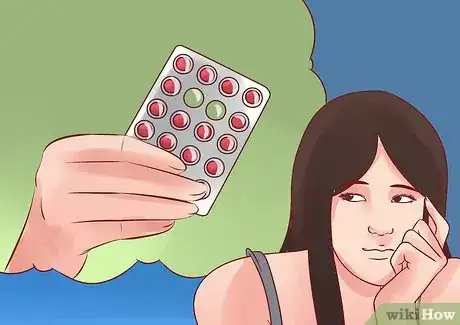
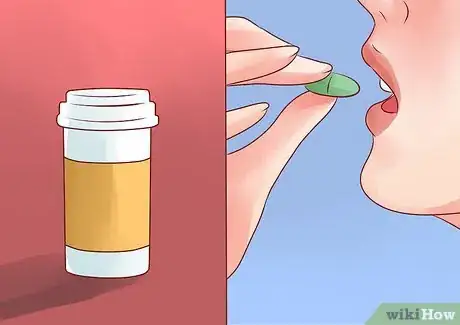
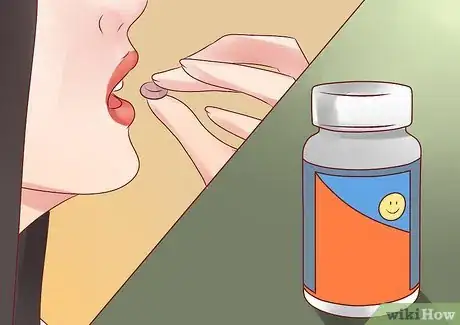
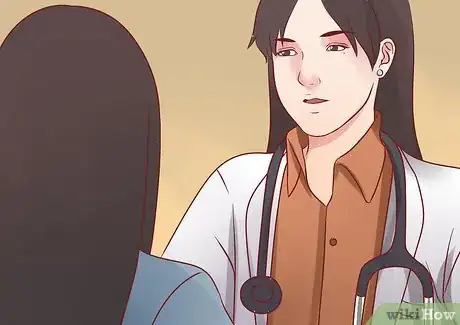
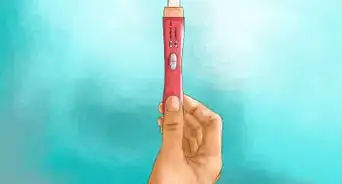
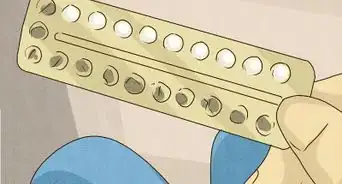
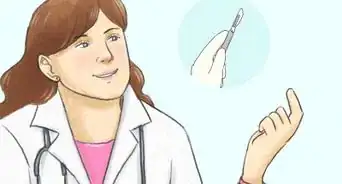
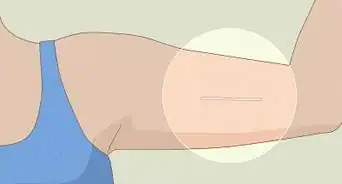
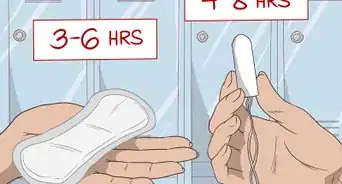

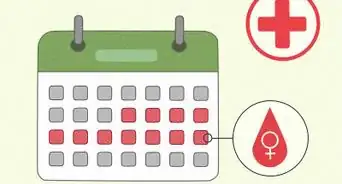
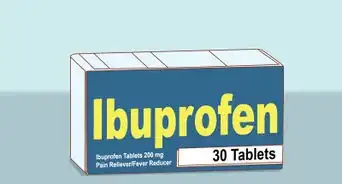

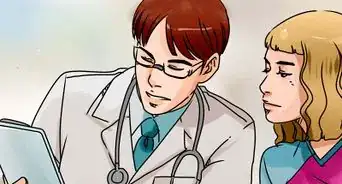
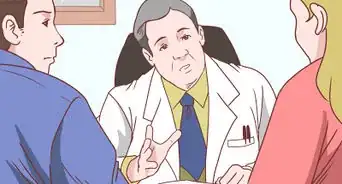
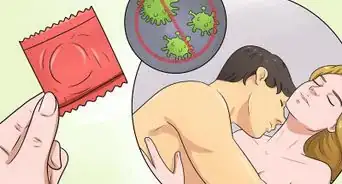
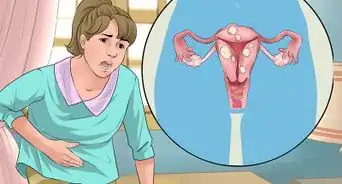














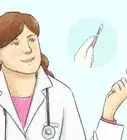
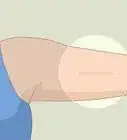



































Medical Disclaimer
The content of this article is not intended to be a substitute for professional medical advice, examination, diagnosis, or treatment. You should always contact your doctor or other qualified healthcare professional before starting, changing, or stopping any kind of health treatment.
Read More...